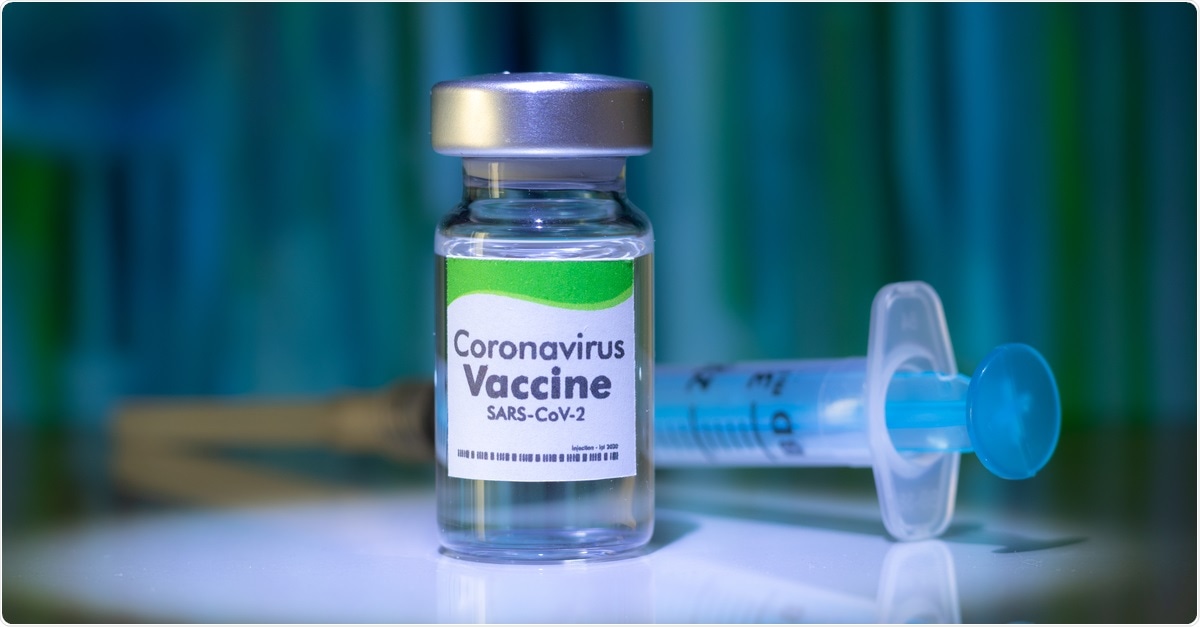Now that a couple of promising severe acute respiratory syndrome coronavirus 2 (SARS-CoV-2) vaccines reach the final stages of their clinical trials, public health authorities are looking into the feasibility of, and strategic operations involved in, universal vaccination.
Apart from the logistical constraints, a major issue may also be the readiness of the population itself to be vaccinated. A new study published on the preprint server medRxiv* in November 2020 suggests that a significant proportion of the Australian population is likely to show vaccine hesitancy. This indicates the need for public health messaging as well as, in some cases, other policy measures.

 This news article was a review of a preliminary scientific report that had not undergone peer-review at the time of publication. Since its initial publication, the scientific report has now been peer reviewed and accepted for publication in a Scientific Journal. Links to the preliminary and peer-reviewed reports are available in the Sources section at the bottom of this article. View Sources
This news article was a review of a preliminary scientific report that had not undergone peer-review at the time of publication. Since its initial publication, the scientific report has now been peer reviewed and accepted for publication in a Scientific Journal. Links to the preliminary and peer-reviewed reports are available in the Sources section at the bottom of this article. View Sources
Need for high population coverage with vaccine
In order to stop the current coronavirus disease 2019 (COVID-19) pandemic – caused by the SARS-CoV-2 pathogen – and to prevent further outbreaks, high levels of vaccine coverage will be necessary even with very effective vaccines. Earlier models suggest that a coverage of about 70% will be needed even with a 100% effective vaccine. The coverage also depends on the infectivity of a virus, from 55% with R0 of 2.2 to 82% with R0 of 5.7.
If the vaccine is only 60% effective, complete coverage would be mandatory, and 75% for an 80% effective vaccine. It is expected that a typical vaccine will have an efficacy below 80%.
Vaccine hesitancy threatens population coverage
On the other hand, the “disinformation” or “misinformation pandemic,” as it is sometimes called, has led to considerable skepticism and resistance towards the vaccines being developed, towards the government and towards scientists in general.

SARS-CoV-2 vaccine prop. Image Credit: Adriano Siker / Shutterstock
This has led to calls for governments to act in allaying public concerns and to mitigate vaccine hesitancy, which is often found in a larger segment of the population than outright resistance. In the USA, about a third of people are unwilling to have it, but about half are hesitant; currently, only a fifth are willing. Likewise, in the UK, about a fourth of the population are hesitant, but less than a tenth are resistant.
Moreover, this attitude is often focused around some hotspots. Such interventions will require an understanding of the social conditions and the type of behavior underlying this reluctance.
Drivers of vaccine hesitancy
The current paper is an early attempt to examine vaccine resistance and hesitancy in a subset of the Australian population. With over 3,000 participants, the study looks into the demographic, sociopolitical, and behavioral framework that contributes to an attitude of vaccine hesitancy.
The researchers define several such classes: those who will probably get the vaccine but are not sure, those who are unlikely to get the vaccine, and those who will not get the vaccine. These are termed as having low vaccine hesitancy, high hesitancy, and vaccine resistance.
The study found that around 60% of Australians were ready to get the vaccine, but about 30% were somewhat hesitant. Another 7% and 6% were very hesitant and resistant, respectively.
From the study’s findings, risk factors for vaccine hesitancy included being female, living in poor or undeveloped areas, believing that COVID-19 was is not a serious threat and having populist or religious views.
Conversely, richer people, those who lived in areas with greater social distancing, downloaded the COVID-Safe smartphone application, were friendly towards migration policies, supported their governments at state or local levels, and their hospitals – with respect to their efforts during the pandemic – had a greater chance of accepting the vaccine once released.
Implications
Earlier reviews have shown that most people support compulsory vaccination in ordinary times. The authors wonder whether opinions have changed due to the restriction of social interactions and other civil freedoms during the lockdown period in Australia. COVID-19 and its vaccine have also been subjected to intensive scrutiny and discussion, making it imperative that the public is informed about the safety and benefits of the vaccine.
The authors sum up, “In conclusion, given that over 75 per cent of the population are likely to need to be vaccinated with a highly effective vaccine to extinguish the epidemic, our findings that only 59 per cent of Australians will definitely get vaccinated is sobering and suggests that proactive measures need to be adopted by countries to encourage vaccination in the community.”
These measures must include effective public health messaging and perhaps other policy-driven steps to include the small but substantial percentage of the population that is skeptical about the vaccine, to ensure that enough of the population is vaccinated to effectively halt SARS-CoV-2.

 This news article was a review of a preliminary scientific report that had not undergone peer-review at the time of publication. Since its initial publication, the scientific report has now been peer reviewed and accepted for publication in a Scientific Journal. Links to the preliminary and peer-reviewed reports are available in the Sources section at the bottom of this article. View Sources
This news article was a review of a preliminary scientific report that had not undergone peer-review at the time of publication. Since its initial publication, the scientific report has now been peer reviewed and accepted for publication in a Scientific Journal. Links to the preliminary and peer-reviewed reports are available in the Sources section at the bottom of this article. View Sources